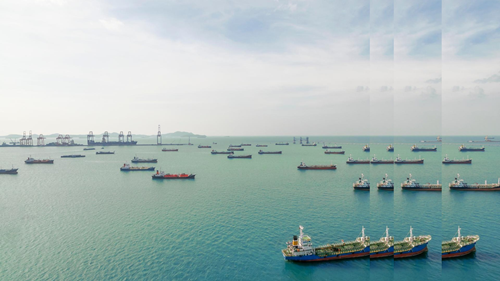Supply chain law update: New coalition reaffirms supply chain due diligence law and supports a European supply chain law
Yesterday, the future governing parties SPD, FDP and BÜNDNIS 90 / DIE GRÜNEN presented their coalition agreement. This also includes implementation plans with regard to human rights due diligence for supply chains.
The new coalition states in its coalition agreement (p. 34) that it wants to support an effective EU supply chain law based on the UN Guiding Principles on Business and Human Rights that shall, however, not overburden small and medium-sized enterprises.
The existing German Supply Chain Due Diligence Act (Lieferkettensorgfaltspflichtengesetz) which will come into force on 01 January 2023 shall - in the view of the coalition partners - be implemented unchanged and improved where necessary. The coalition also supports the EU Commission's proposal for a law on deforestation-free supply chains and the EU's proposed ban on imports of products from forced labor. Similar bans already exist in the US and Canada.
The EU Commission's proposal for a new directive in the area of supply chain law is expected in December this year. It is expected that the directive will lead to further requirement with regard to human rights and environmental due diligence in supply chains. While the German Supply Chain Due Diligence Act applies to companies with 3,000 or more employees from January 1, 2023, and the employee threshold is to be lowered to companies with more than 1,000 employees from January 1, 2024, it is expected that the draft of a European directive on supply chain due diligence will also affect smaller companies that have fewer employees. This is also indicated by the Whistleblower Directive (RL (EU) 2019/1937), which provides for the application of the requirements for future mandatory whistleblower systems to companies with more than 50 employees.
In addition, it is expected that the European Directive will provide for stricter requirements with regard to civil liability. At present, Section 3 (3) of the LkSG expressly provides that German companies should not be liable under civil law for a breach of the LkSG. Should a future EU Directive provide for civil liability, the LkSG would have to be amended accordingly.
It therefore remains to be seen how the European legislator will proceed with regard to supply chain law. The German industry will therefore have to expect further regulatory requirements in the area of supply chains.
Read more: https://www.noerr.com/en/newsroom/news/new-german-law-on-duty-of-care-in-supply-chain-organization-enters-into-force-on-1-january-2023
Well
informed
Subscribe to our newsletter now to stay up to date on the latest developments.
Subscribe now









